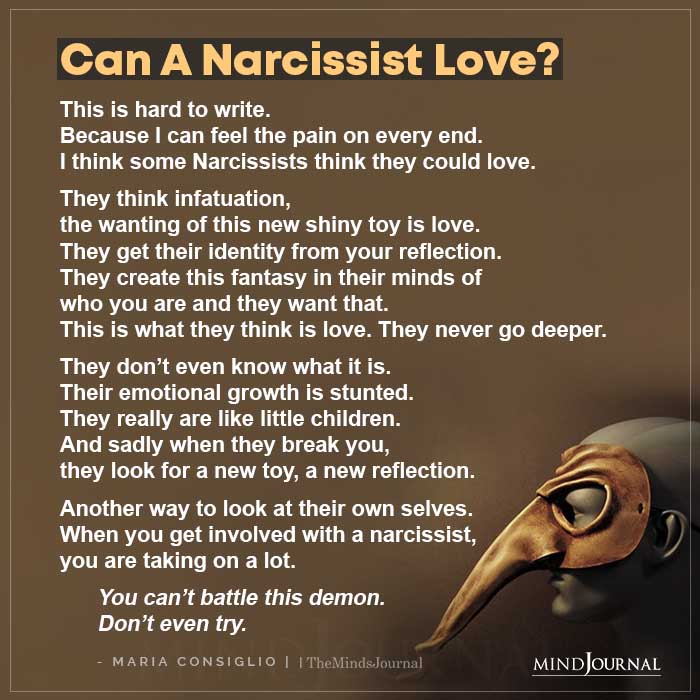A relationship with someone who is innately narcissistic, whether romantic or platonic, can be harmful and, in some situations, devastating. We’ve heard how narcissistic people are unable to love another person, at least in the way that people would understand love. They lack empathy and have a tendency to exploit others for personal gain. But everyone loves their mother, don’t they? So do narcissists love their mothers or is it difficult for them to show love and affection to their mothers too?
Do Narcissists Love Their Mothers?

The most asked question when discussing narcissism is, “Are narcissists close to their mothers?”
Well, someone who is diagnosed with Narcissistic Personality Disorder (NPD) doesn’t really have the ability to love another person in the most conventional way. However, people with just narcissistic traits but not NPD, are likely to experience love in some ways.
One may think, “do narcissists love their mothers?” Well, according to experts, narcissists lack empathy. They are hesitant to recognize the feelings of others.” There is also research that claims that they may have structural abnormalities in the regions of their brain which is associated with emotional empathy. Hence, their ability to respond and express emotions or care is somewhat impaired.
However, there are some narcissists that are pragmatic in their approach to relationships, family and they focus on their goals. They may have positive feelings toward their mothers, but it can be based on how well they provide them with comfort and care or shared interests. But if they’re challenged or don’t get their way they become cold and critical. They may show affection only when it’s convenient and their ego is satisfied.
Related: 7 Signs Your Mother Is An Exhibitionist Narcissist
What is the Relationship Between a Narcissist and His Mother Like?
While narcissism may affect both men and women, it is more frequent in men, and one type of narcissism develops as a result of a dysfunctional mother-son attachment bond. So when one asks, do narcissists love their mother?
Yes, if a mother idealizes her child at a young age, it boosts his ego. Unfortunately, the instant she displeases him, she experiences bitterness. Only by creating a false picture and infusing it with grandiose ideas, the child is able to cope with the feelings of resentment.
Hence, in relationships between narcissists and their mothers; they don’t love their mother as much as they need a mother. Someone who gives them constant approval and unending compliments, or someone who praises them for their accomplishments.
Related: The Sons Of Narcissistic Mothers And The Damage They Endure
How Do Narcissist Treat Their Mom?
How do you think narcissists are created? It’s a cycle of abuse. How a narcissist treats their mother or father depends to a large extent on who they come to blame for their problems. The developing narcissist initially seeks to please both parents. They may even develop a form of codependency to get love and approval.
If the narcissist’s mother rejects the child, it creates resentment in the child and results in them treating their mother as inferior.
Some other ways how narcissists treat their mother:
- Having a difficult time empathizing with their mothers or other family members.
- They are prone to temper tantrums when they do not get their way.
- They tend to gaslight or manipulate to control.
- They use positive compliments or emotions to trick their mothers into believing them.
Related: 24 Characteristics of Narcissistic Mothers
What Can Mothers Do If Their Child is Becoming Narcissistic?
The narcissism of a child can be a result of bad parenting but it may not always be emotional abuse caused by their parents. There are other factors that can contribute to narcissistic personality disorder. All children want their love, attention, and approval from their parents. But if you think your child might be exhibiting narcissistic traits? Here’s what you can do about them.

- Have a conversation with your child and let them know about how their behaviors affect others.
- Teach them the importance of empathy skills and lessons on how to share and say “sorry.”
- Show them how to incorporate service into their daily life.
- Focus on soft skills like being kind, generous, and compassionate.
- Learn to work on your emotional vulnerabilities and be self-aware.
Final Thoughts
Do narcissists love their mothers? Perhaps, but when it comes to narcissistic adults, they don’t know how to show that love. Regardless of how their mother is or how healthy or complicated their relationship is. It will be toxic, just like other narcissistic relationships, if boundaries are not well-maintained.
Frequently Asked Questions (FAQs)
How do narcissists treat their children?
Narcissistic parents can treat their children in a way that they become overly possessive and controlling. This may affect the child’s imagination and motivation.
Can narcissists love their siblings?
One must be thinking, “do narcissists care about their family?” The answer would be yes but it majorly depends on how their parents or siblings made them feel. Someone who is diagnosed with NPD doesn’t really have the ability to love another person in the most conventional way.
Can a narcissist be a good mother?
When it comes to parenting, research suggests that narcissist mothers are incapable of loving others their own children. A mother who lacks affection and concern can either be too controlling or too neglectful.










Leave a Reply